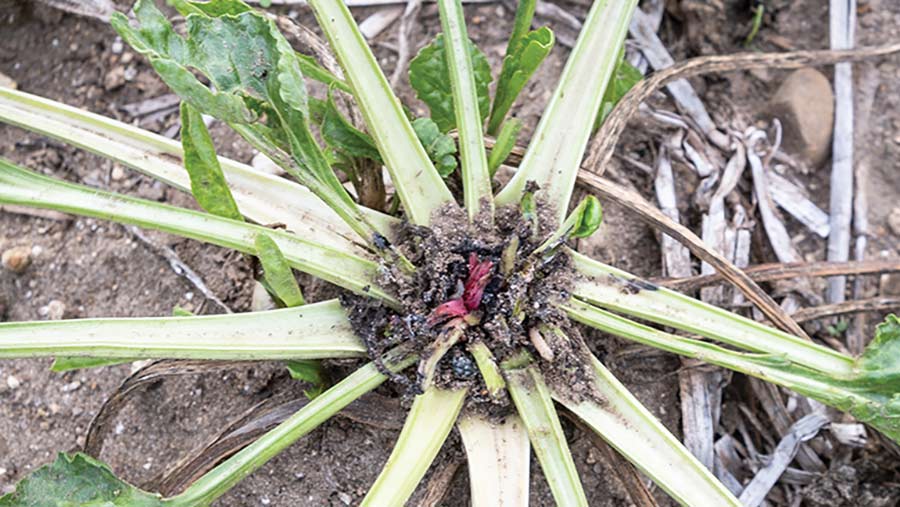Beet growers to gain from emergency approval for beet moth
 © Blackthorn Arable
© Blackthorn Arable Beet growers seeing high levels of beet moth are set to benefit from the emergency authorisation of an insecticide used in maize and carrot crops.
Sugar beet growers were counting the cost of the beet moth in autumn 2022, which was seen in large numbers for the first time in the summer, due to the hot, dry conditions.
See also: Will the beet moth strike again in crops this summer?
The moth (Scrobipalpa ocellatella) devastated some crops with the larvae feeding on foliage, leading to defoliation and secondary rots.
Importantly, they can also feed on roots.
Worst-affected growers were left with little option other than lifting defoliated crops earlier, losing out on yields, as there are no approved insecticides.
This season has seen the return of conditions which favour beet moth.
The British Beet Research Organisation says there are increasing reports of caterpillars being found in the crop, particularly in the Bury St Edmunds factory area.
Infestation appears to be heavier where this pest has previously been a problem.
To help farmers, the chemicals regulation division of the Health and Safety Executive has granted emergency authorisation for the use of one application of the insecticide Coragen (chlorantraniliprole) until 30 September 2025.
This insecticide is approved for use in maize crops to control corn borer and to control carrot fly in carrot crops.
Under the emergency authorisation, farmers must follow Stewardship measures which include disposal of beet tops.
Sugar beet tops treated with Coragen must not be fed to livestock.
Records need to be kept of any treatments and disposal of treated beet tops.

